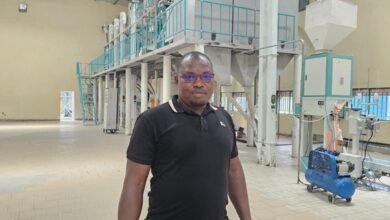Benin aiming to « become leader in Africa by 2026 »
The Talon regime has made tourism the 2nd pillar of the Beninese economy behind agriculture. With an investment of 700 billion CFA francs, Benin is upgrading its tourism potential to become the leader in Africa by 2026.
By Ulrich Viany, in Cotonou
Benin is a mainly tax-based economy and is counting on tourism to diversify and boost its sources of revenue. « (…) The unprecedented investments underway will be accelerated to make the sector a key lever of our economy and propel Benin to the rank of dream destinations (…), » Benin’s Head of State, Patrice Talon promised during his inauguration speech in May 2021.
The development of the tourism industry has therefore been placed at the heart of development strategies and creation of wealth and jobs, since 2016. It is naturally based on the development of heritage, culture and the arts. The Beninese government’s stated ambition is to increase the national tourism offer, by 2026, and above all to offer very attractive visiting conditions to tourists.
« Beninese should then expect that five years later, we can have a densified tourism offer, » Minister of Tourism, Culture and Arts, Jean Michel Abimbola told the national television on June 9, 2022. That offer, he insists, will be sufficiently upgraded so that the country can hold its place on the continent and in the world in terms of tourism which has become today a product of interest and global consumption, albeit a real industry.
From words to action
To achieve its goal, Benin has launched several feasibility studies for its tourism program. It has also decided to exempt all nationals of 53 African countries from visa requirements for 90 days without reciprocal requirements. In very plain terms, any African can enter the country and move around freely for three months. In addition, the « e-visa » is introduced for entries requiring a visa.
With regard to the development of resources, the Pendjari Park, one of the most impressive in Africa, has been revamped and restructured and its management has been entrusted to the NGO African Parks Network. A reference seaside resort is being developed at Avlékété (west of Cotonou), and will house a Club Med type vacation village. Several private hotel projects (Banyan Tree, Hilton and Golden Tulip) also in Avlékété are nearing completion.
Promotion of ‘‘Destination Benin’’

In order to better promote Benin’s heritage, culture and arts, the country is subdivided into five tourist attractions. Each attraction will be densified according to a specific schedule. In the historic city of Ouidah, for example, the rehabilitation of the Portuguese Fort (which will temporarily house, in the last quarter of 2022, the 26 works of art returned by Benin) has been completed, and those of the Gate of No Return and other historic sites, as well as the construction of the International Museum of Memory and Slavery, are well underway. Ganvié, the lake city still called « the Venice of Africa », is also undergoing a transformation. This project aims to make Ganvié, through the renovation of its habitat, its living environment, a pilot site for the development of lake tourism respectful of authenticity and environmental standards with the construction, among others, of several houses on piles. The Vodoun museum will also be built in Porto-Novo. The historic city of Abomey, the cradle of Vodoun, in addition to the sites of the royal palaces and others, will host the Museum of the Epic of the Amazons and the Kings of Danxomè.
With regard to the Amazons, the Beninese government has built a monument in honor of these brave women soldiers in Cotonou, and has decided to make it the visual identity of « Destination Benin ». Several other projects such as the training and professionalization of tourist guides; the reconstruction of royal palaces; the building of seven cultural arenas and the construction of the road of convents linking five communes of the country, are also planned.
The Beninese government offensive to boost its tourism economy does not end there. Handicrafts, contemporary art, culinary art and culture will also be put to use through markets, festivals, fairs and exhibitions, to attract tourists. The experience of the public exhibition of the 26 cultural works returned by France, which attracted 200,000 visitors in 45 days, is an additional source of motivation for the Beninese authorities who believe that the tourist demand (local and foreign) persists in very high numbers.
All the completed, ongoing and future projects are estimated at 700 billion FCFA (more than one billion Euro) financed by the national budget and Benin’s technical and financial partners.






